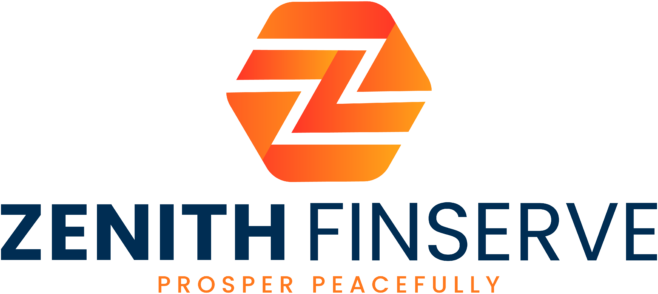
A comprehensive financial plan is a panorama of your life designed to achieve your life goals based on comprehensive & detailed evaluation of your current financial situation & life goals.
You can think of a Comprehensive Financial Plan like a Google Map. If you want to go from one place to another, you enter your current location & destination in the Google Map. Google Maps finds various routes & suggests you to take the best route to your destination based on various factors.
Similarly, a comprehensive financial plan helps you clearly state your current financial position (think of it like your current location in a Google Map) & your desired life goals (think of it like your destination in a Google Map). Accordingly, provide an action plan by making efficient use of your money (finding the best route) in the direction to achieve your life goals.
A comprehensive financial plan covers all aspects (incomes, expenses, assets, liabilities, insurance, taxes, life goals, risks, scenarios, emergency, liquidity, cash flows, etc.) of your finances. It is beneficial as it provides you clarity about prioritising & achieving your life goals. It also helps you to achieve your goals faster by making efficient use of your money.
You should consider making a comprehensive financial plan if you are not clear about whether you will be able to achieve all your life goals timely or have a crucial life decision to make that may affect your finances. Once the plan is prepared, it should be reviewed &/ or revised periodically to accommodate ongoing changes. You should consult a professional Certified Financial Planner to make a comprehensive financial plan for you.
Understanding Life Goals and Values – We take the time to understand your goals, values, and aspirations. We have in-depth conversations to determine what is truly important to you, such as going for an annual vacation, buying a house, funding your children’s education, and ensuring a comfortable retirement.
Collecting Information – We collect information about your income, expenses, assets including existing investments, loans, and insurance cover, and any specific financial concerns you may have.
Comprehensive Review – We conduct a thorough assessment of your financial situation. We evaluate your insurance needs that includes your life insurance & health insurance to manage the risks. We review your existing insurances. Then, we review all your existing investments in line with your life goals & risk profile. We also review their cash flows, expenses, tax outgo, and loans.
Final Suggestions – After comprehensive review of the overall situation, we suggest appropriate insurance coverage to protect your assets and mitigate risks. We help you create a system to effectively manage your cash flows. to allocate funds towards your goals. We suggest an investment portfolio based on your suitability across asset classes and products to optimise returns while managing risk. We also suggest tax-efficient investment strategies to optimise taxes.
What is a Comprehensive Financial Plan?
A comprehensive financial plan is a comprehensive evaluation of your current financial situation, setting & prioritising your life goals, & preparing a strategic action plan to achieve your goals.
You can think of it like a Google Map. If you want to go from one place to another, you enter your current location & destination. Google Maps finds various routes & suggests you to take the best route to your destination based on various factors.
Similarly, a financial plan helps you clearly state your current financial position (think of it like your current location in a Google Map) & your desired life goals (think of it like your destination in a Google Map). Accordingly, prepare a strategic action plan by making efficient use of your resources (finding the best route) in the direction to achieve your life goals.
What is the core purpose of a Comprehensive Financial Plan?
The core purpose of a Financial Plan is to help you achieve your life goals.
What all aspects are covered in a Comprehensive Financial Plan?
A comprehensive financial plan covers all aspects of your finances. These include your Income, Expenses, Assets, Loans, Insurance, Investments, Taxes, Financial Goals, Budgeting, Emergency funding, Liquidity, Provision, Asset Allocation, Cash Flow, Net Worth, & others.
What are the benefits of a Comprehensive Financial Plan?
A comprehensive financial plan has many potential benefits. The actual benefits to you depend upon your personal situations & requirements.
There are qualitative as well as quantitative benefits of financial planning.
Should you make a Comprehensive Financial Plan?
You should consider making a financial plan in the following two conditions-
- If you are not clear about whether you will be able to achieve all your life goals timely & have a well-funded retirement.
- If you have a crucial life decision to make that may affect your finances, you should consider making a financial plan before taking the decision to make an informed decision.
What are the steps to build a Comprehensive Financial Plan?
A holistic financial plan is built in the following steps-
- Identify & document your financial goals
- Evaluate & document your current financial position
- Work out & document a strategy to achieve your financial goals from the current financial position
- Document an action plan to implement the strategy
How should you implement a Comprehensive Financial Plan?
A holistic financial plan should be implemented in steps. The actual steps will depend upon your specific situation.
How frequently should you review a Comprehensive Financial Plan?
A holistic financial plan should be reviewed to accommodate changes in the plan. If things are going normal in your life & there are no major changes with respect to the originally built plan, a holistic plan should be reviewed once a year.
In this annual review, usual changes in income, expenses, assets, liabilities, insurances, & taxes that generally happen once a year may be incorporated.
In which situations should you review a Comprehensive Financial Plan?
A holistic financial plan may be reviewed based on internal or external situations.
Internal
- Job change
- Job loss
- Drastic change in income
- Drastic change in expenses
- Acquisition or sale of a new asset
- Creation or close of a liability
- Addition, deletion, or change in a financial goal
- Change in assumptions on the basis of which plan was built
External
- Change in economic situation
- Change in market valuations




